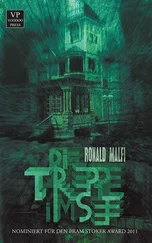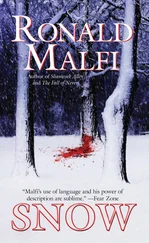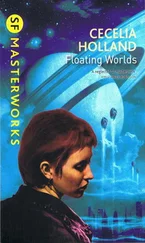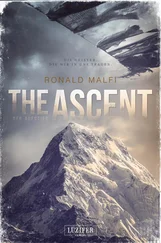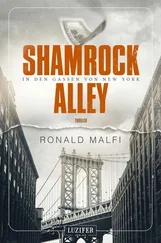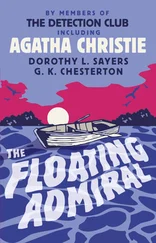Wiping a glass with a dishrag, Tooey Jones approached the table. “One of the few lost souls who dare to brave the rain,” he commented. “What’ll it be?”
I ordered a glass of water, which I gulped down the moment it arrived, as well as a gin and tonic (so that I wouldn’t arouse suspicion), which remained untouched on the table beside the envelope I’d gotten from Earl. On the juke, the sad country song segued into some old but upbeat Charlie Rich tune. Across the room, the framed panels from Blake’s Songs of Innocence and Experience were like startling and irrational anomalies that somehow made their way into an otherwise mundane dream. My gaze lingered on the reproductions of “The Little Boy Lost” and “The Little Boy Found.”
When Adam arrived, his hair was matted to his head with rainwater, and he was blowing into his hands for warmth. He ordered a beer at the bar, then came over and sat opposite me at the table. He was in plain-clothes—khaki slacks, an outdated American Eagle sweater, canvas peacoat with corduroy cuffs and collar—and he looked exhausted from a long day.
Smiling at him, I tried my best to look casual.
Under the pretense of brotherly companionship, I’d phoned Adam this morning and asked him to meet me for a few beers down at the ‘Bird when he got off work. I had said nothing about Earl’s envelope (which was now tucked beneath the table in my lap) or the contents therein. I would sit here and engage my brother in idle small talk and wait to see if the rest of my plan fell into place.
Just as Jodie and I had overcome my little episode—the “incident,” as I thought of it—following my breakdown on the floating staircase, my brother and I had seemingly bridged our differences as well. Whether it was genuine or only the illusion of authenticity, we became brothers again. (Suffice it to say, I knew my intentions on this evening—as well as the envelope in my lap—risked destroying all that we had rebuilt, although I hoped it wouldn’t. Had I possessed any doubt about the contents of the envelope, I would have set it afire in the hearth back at the house and never brought up the Dentmans to my brother again.)
“You’re looking better,” Adam said over the rim of his pint glass. “How’re you feeling?”
The flu had passed for both of us—following me out onto the floating staircase that afternoon, Adam had gotten sick, too—and I’d shaved and had my hair cut.
“Better,” I told him. “Stronger.” For a second, I wondered if he could sense the nervousness just below the surface of my voice.
Five minutes later—right on time—the pub’s door banged open. David Dentman’s broad-shouldered outline was framed against the stormy, gunmetal sky. Dripping rainwater on the floor, Dentman pushed through the doorway, his considerable bulk exaggerated by the heavy corduroy coat he wore. Behind him, the pub’s door slammed shut on its frame. Aside from my brother and me, no one looked at him.
Adam did not say anything at first. He didn’t even glance at me. Not that I was prepared to look at him; my stare was locked on Dentman.
When Dentman noticed me from across the room, it was like being spotted in the beam of a prison yard’s searchlight. His expression was the same one he’d had that day when he came home and found me in his house with his sister—like a pot graduating to a slow boil on the stove.
“Travis,” Adam said, his voice small. He was still looking over his shoulder.
“He’s going to want to hit me,” I said quickly as Dentman approached our table.
The big man stood before the last empty chair at the table. If he recognized my brother, and I was pretty sure that he did, he didn’t acknowledge him. Glaring at me, Dentman squeezed a folded slip of paper in one fist.
I didn’t need to examine it to know it was the letter I’d printed on my word processor and stuffed into a plain white business envelope. I’d driven to the Dentmans’ house in West Cumberland yesterday evening and fed the letter through the mail slot in the door. Then I’d knocked and quickly climbed back into my car and pulled backward down the drive. Until now, I’d had strong doubts that Dentman would even show up. Despite what I’d written on that letter . . .
“What is this?” Dentman’s voice seemed to come from deep down in his chest. I could tell his sentiment echoed my brother’s, who remained silent.
“Sit down,” I told Dentman.
“Travis.” Adam had found his voice, weak as it was.
Dentman pulled out the empty chair and slowly lowered himself into it. Both his hands were in his lap and beneath the table, and a swimmy, unsettling thought crossed my mind—maybe he’d brought a gun. I was pretty certain Adam had his gun on him—even off duty, he typically carried it—but would he be able to pull it in time if Dentman decided to plant a bullet in my brain?
“What’s going on here, Travis?” Adam continued.
Dentman took Adam in. He must have assumed my brother was in on this, that we’d both come together to gang up on him.
“This is it,” I told them both, setting the cheese-yellow envelope on the tabletop. “This is what I found.” I turned to Adam. “You can do with it what you want, but I’m done after tonight.” Thinking of my marriage, I added, “I have to be.”
“I can see I made a mistake not filing those charges against you,” Dentman said. He was red faced and fuming.
Pushing the envelope in front of Adam, I tried to sound calm. “It was something you told me last month. You said murderers have motives, innocent people have alibis, and you can’t lock people up just because the pieces don’t fit.”
“Travis . . .” There was a stomach-weakening distress evident in Adam’s tone. With the sober perception of a clairvoyant, I knew I was breaking his heart.
“Open it,” I told him.
He picked up the envelope but didn’t open it right away.
Dentman adjusted himself in his seat, and I thought he was going to stand up and march right out of the bar. But he remained seated, and I could almost see the anger radiating off his scalp like steam from hot coals.
“Do it,” I urged Adam. “Go on.”
Adam slipped his thumb beneath the tape and ripped open the envelope. What slid out onto the tabletop was a stack of papers bound together by a metal clip. He fingered the first page, lifted it to see the printout underneath. “What am I looking at?”
“It’s the time and attendance records of the construction company where you work,” I said, speaking directly to Dentman. “You’ll notice the date on the top sheet is the same day Elijah supposedly drowned.” I leaned over and absently tapped the column I’d highlighted. “Those are Dentman’s hours.”
“Where’d you get this?” Adam said.
“Doesn’t matter. It’s all there.”
“I don’t have to sit here listening to this,” Dentman said, but he didn’t get up.
“You couldn’t have been at the house the day Elijah disappeared,” I went on, “because you were at work. You clocked out at a quarter after six. The job site was just over thirty miles away, so the earliest you could have gotten home was six thirty, and that’s if you were speeding. More like quarter to seven is my guess. Which would account for the delay in calling the police.”
“This is bullshit,” Dentman muttered, his teeth clenched.
“What’s bullshit is your statement to the police.” From my pocket I took the articles I’d torn from the library newspapers and unfolded them and set them on the table. “According to Nancy Stein’s statement, that scream she believed she heard happened around five thirty.”
“The sound of the boy falling off the staircase,” Adam said, studying the paperwork.
Читать дальше


